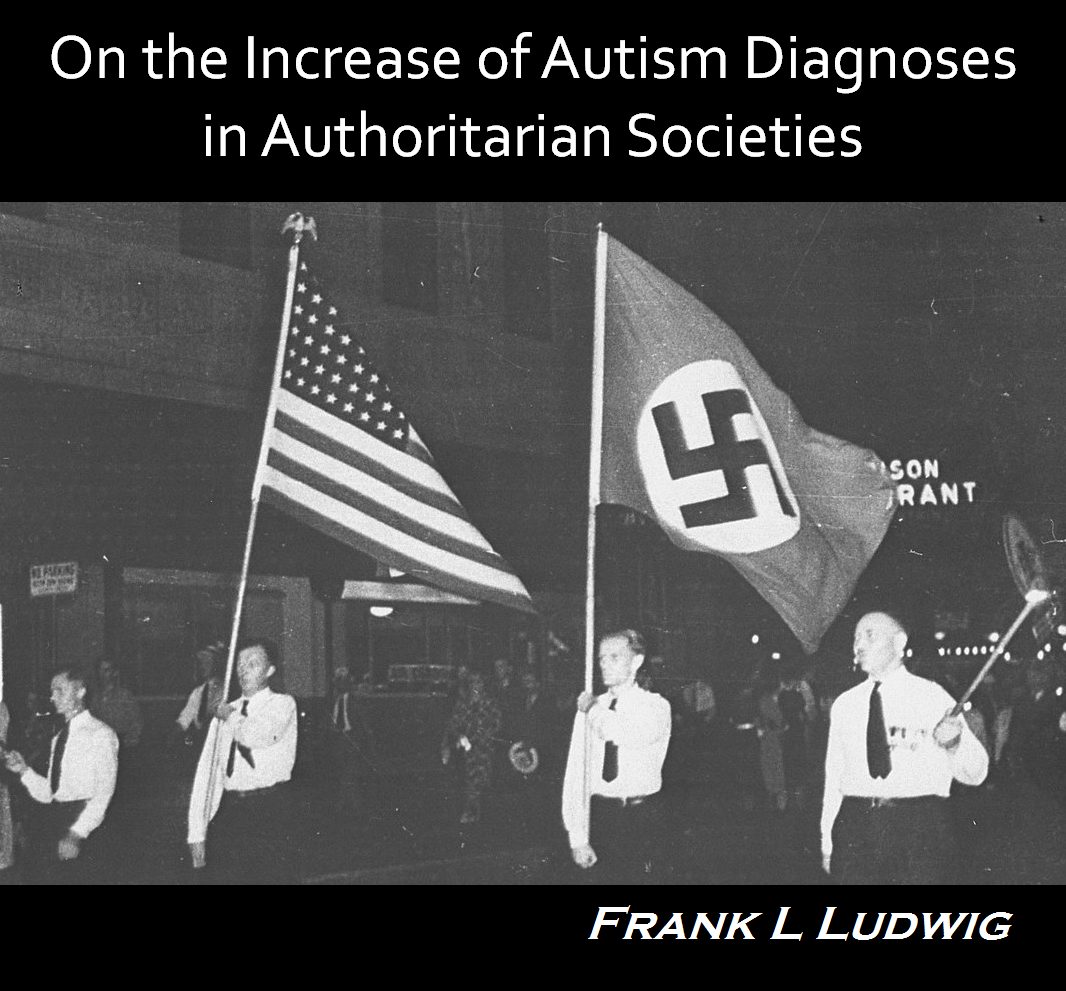
Hans Asperger, a doctor in Vienna, was charged with evaluating children who failed to fulfil the social expectations of their surroundings and who were therefore diagnosed with personality disorders. He referred those he deemed 'uneducable' to Am Spiegelgrund, a children's clinic where many of them were euthanised. In over 200 of these children he observed what he described in his paper Die autistischen Psychopathen im Kindesalter ('Autistic Psychopaths in their Childhood Years') as a 'lack of empathy' (keep in mind that when mainstream people talk about empathy, they usually mean nosocentrism), 'poor ability to make friends, unidirectional conversation, strong preoccupation with special interests, and awkward movements'.
The United States in 1943. Following Japan's attack on four US colonies in the Pacific in 1941 (including that on Pearl Harbour), the US had entered WWII on the side of the Allies. The First Amendment was practically suspended, and all critics of the government were silenced and sanctioned. All groups and individuals other than white Christian Americans were oppressed and, in many cases, persecuted. US citizens of German, Italian and Japanese ancestry were rounded up and sent to concentration camps.
Donald Triplett from Missouri was an autodidactic child who was able to entertain himself and showed no interest in interacting with people. He was institutionalised at the age of three, but his parents brought him home the following year. He was studied by child psychiatrist Leo Kanner who made him the first person to receive an autism diagnosis and subsequently published his paper Autistic Disturbances of Affective Contact.
It is no coincidence that autism was first described as a disorder in authoritarian societies. The more a society is obsessed with conformity and compliance, the more those who express themselves individually will be regarded as subversive or mentally ill.
Conservative and authoritarian societies are centred on collective identities like religion, ethnicity, nationality, culture etc; therefore the individual is considered of little or no value in themself, and individual expression is at best frowned upon.
Any deviation from the norm is pathologised or even criminalised, the norm being a continuously narrowing spectrum of behaviours and expressions tolerated by society. And the narrower the norm becomes, the more people will be considered 'not normal', excluded from society and even persecuted.
In my Deindividuation Resister Hypothesis I argue that human progress is driven by people who resist social conditioning and, at least to an extent, retain the individual identity everybody is born with (at the cost of being ostracised and often pathologised with the label of autism) while people who identify collectively provide the network to spread it. As authoritarianism takes collective identities to the extreme, the number of people excluded from society will continue to rise and, as I conclude in the hypothesis, 'the more the world slides back into authoritarianism, the more people will be diagnosed with autism.'